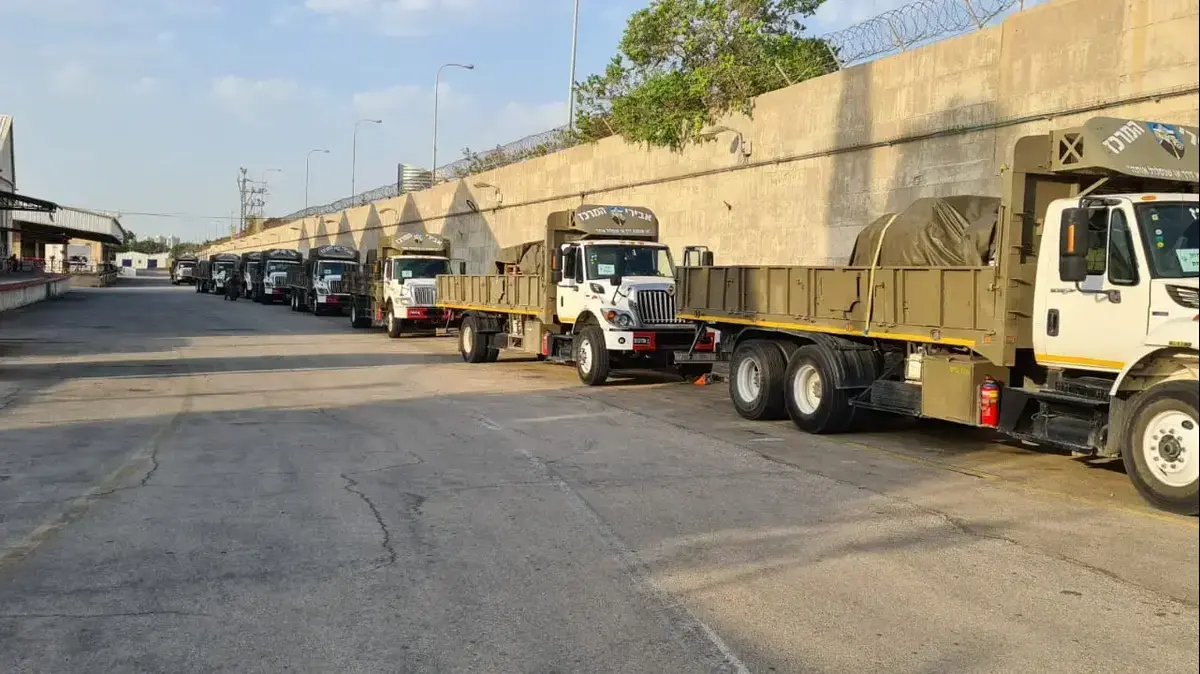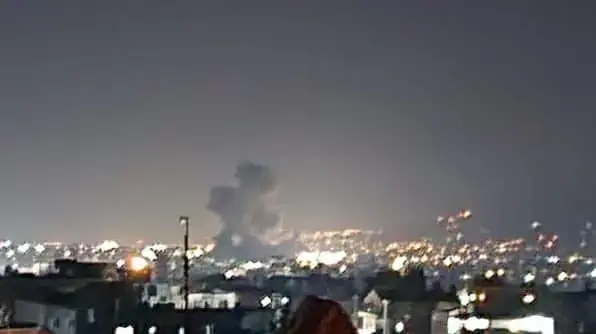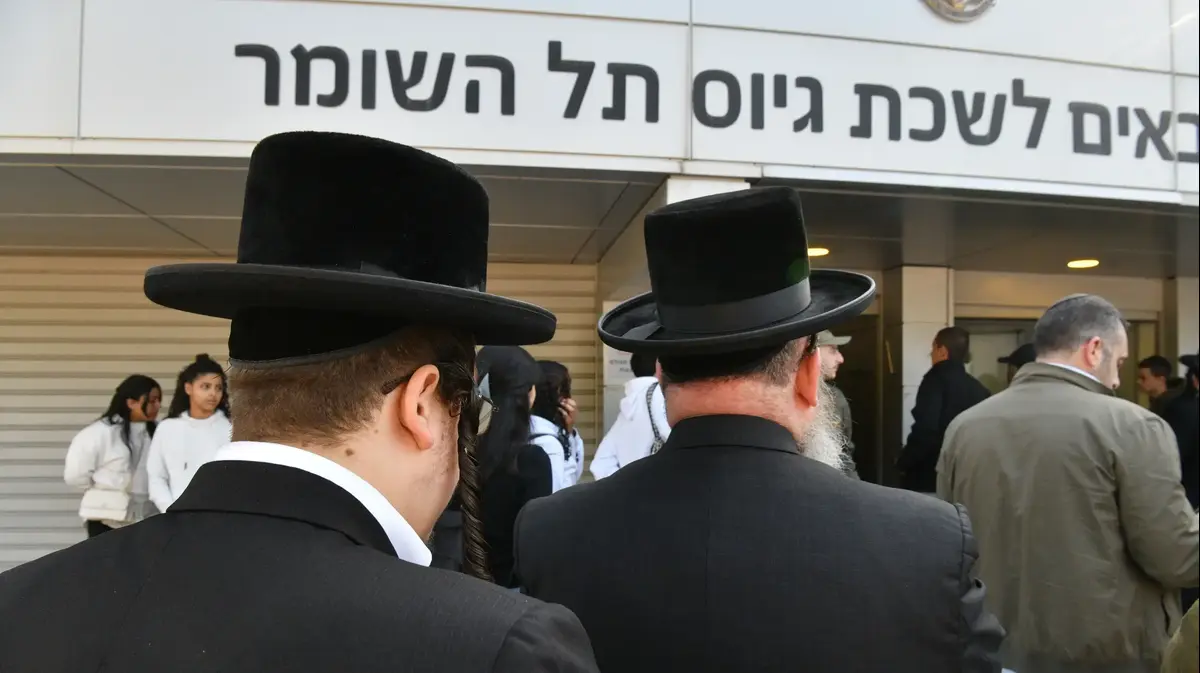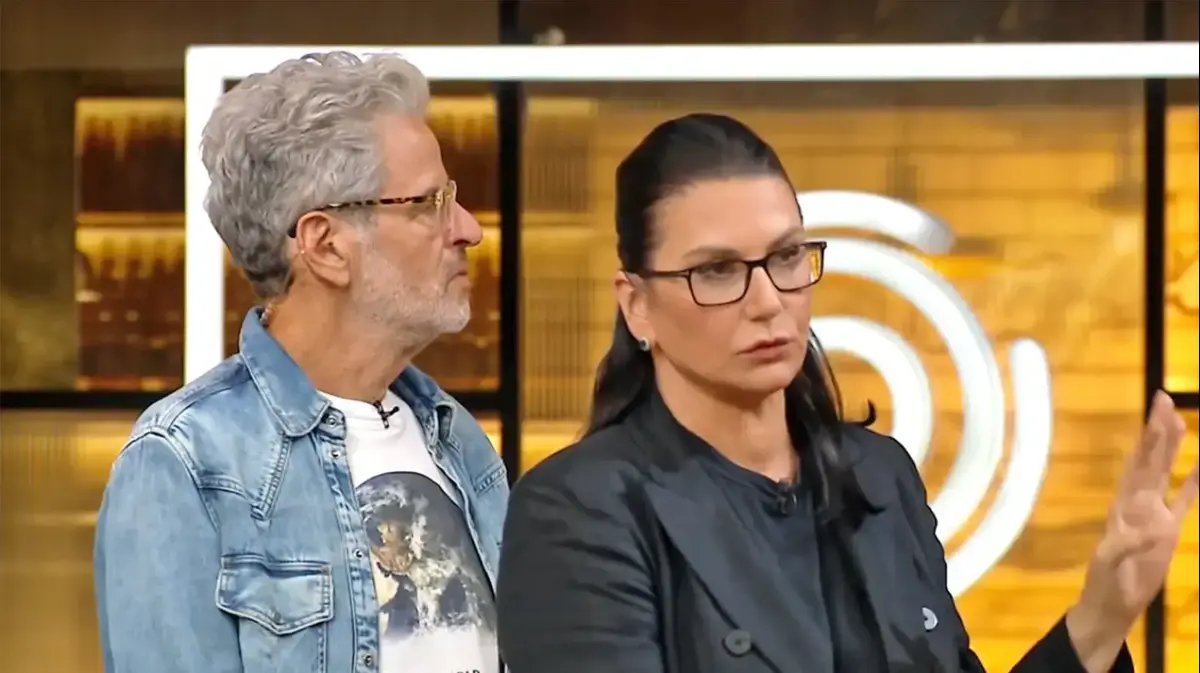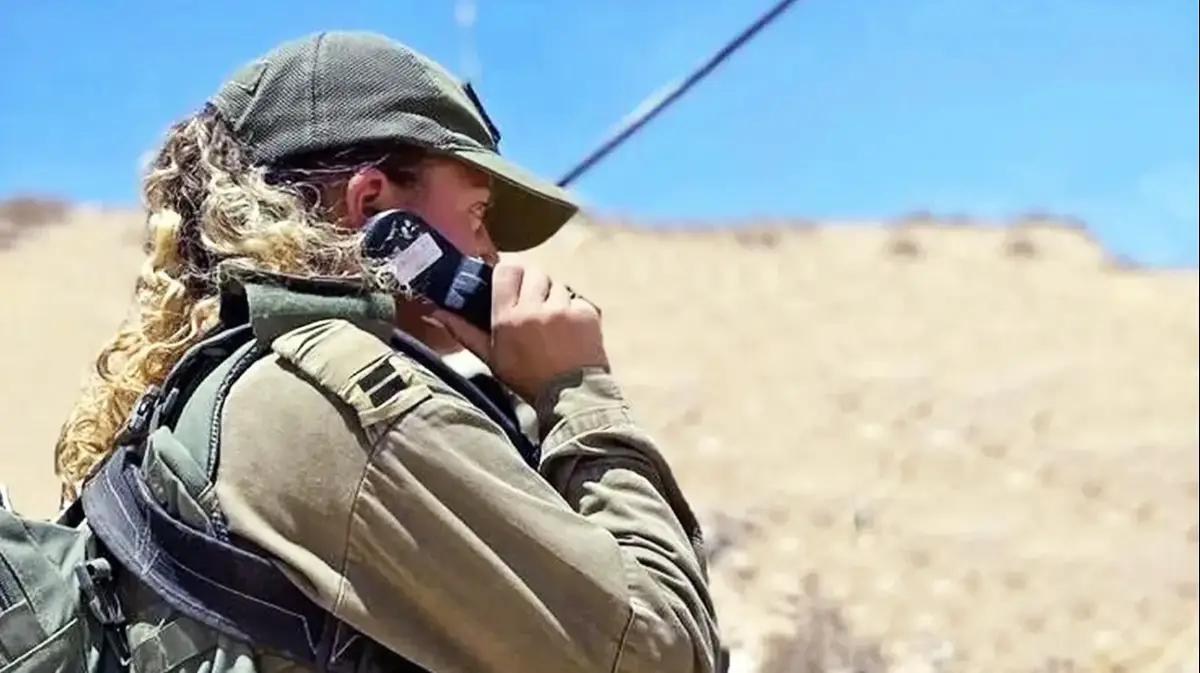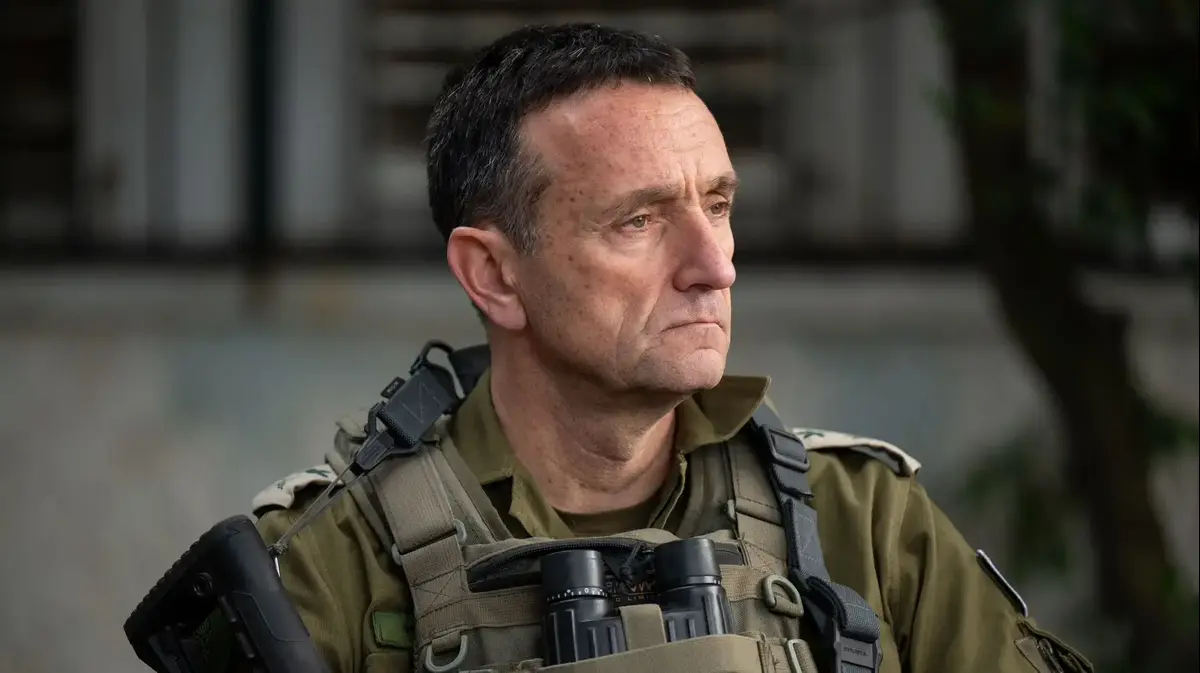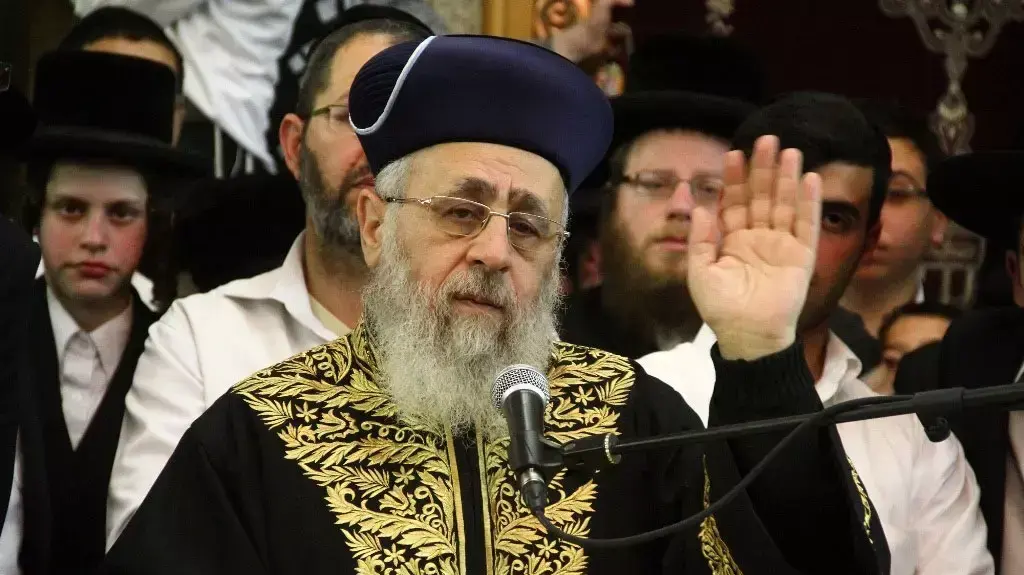The IDF gives itself high scores this year - and the public is a little less impressed
The past year has been characterized by a paradox: while the months following Operation Wall Guard were relatively quiet, public confidence in the IDF eroded. What will happen in 2022?
Tal Lev Ram
02/01/2022
Sunday, 02 January 2022, 01:55
Share on Facebook
Share on WhatsApp
Share on Twitter
Share on Email
Share on general
Comments
Comments
In a relatively stable year in terms of security, with a low number of civilians and soldiers killed compared to previous years, the IDF finds it difficult to gain public trust. The IDF gives itself high marks. Both for its operational function against the Iranian establishment in Syria, both in the war on terror in Judea and Samaria and in Operation Wall Guard in Gaza.
The mood of the Israeli public is more difficult to measure, but various surveys, such as that of the Israel Democracy Institute, as well as growing criticism in the media and social networks, including by soldiers and fighters, place a gap between how senior military officials perceive IDF performance and the scores it gives To himself, and the score he receives from the public.
As in the past, in relatively quiet periods from a security point of view, routine issues occupy most of the agenda: the conditions of soldiers and fighters, soldiers' salaries, the debate over permanent pensioners, exceptional events, media crises and issues related to military management and competence.
In the past, as mentioned, a similar pattern was recorded, but not at such intensities.
It seems that in recent years it has been much more difficult for the IDF to obtain public credit.
The technology - in the shoe
The natural solution to knee pain is closer than ever - with a refund from the health insurance fund
Served on behalf of Apostrophe Therapy
Military exercise (Photo: IDF Spokesman)
Following the publication of the latest survey by the Israel Democracy Institute, the IDF stressed that in the operational field the army received high marks from the public, compared to very low marks the army received in the survey on its budgetary conduct and the way it treats its soldiers. On the continued erosion of public confidence in the IDF. The military, more than any other public institution, still enjoys the highest level of trust, but the erosion trend continues and is troubling.
The focus of the discourse is on the soldiers' basic conditions - food, accommodation, the quality of medical care and transportation. Too late, the IDF leadership realizes that an army that is not perceived as a professional body in a routine will not be perceived as such even in battle. To his soldiers, to a large extent this is even more important than the recent increase in subsistence fees.
Chief of Staff Aviv Kochavi Teva At the beginning of his tenure, a sentence in which he sought to emphasize the army's priorities, especially in days when there was no orderly budget: "cannons before socks." , In an army that in recent years has had difficulty feeding and medically treating its soldiers appropriately.
Chief of Staff Kochavi and GSS chief Ronen Bar at the scene of the attack in Samaria, December (Photo: IDF Spokesman)
The attitude that first of all the operational needs and the need to meet the tasks and then everything else, just does not prove itself. It now seems that the army leadership, albeit belatedly, realizes that in the year leading up to the gap between the IDF's tremendous technological capabilities and the level of maintenance at the disgraceful bases and living conditions of soldiers and fighters in particular, it is unthinkable. Works more.the generation and period are different, and our youth are still willing to contribute and serve, but it also rightly demands what it deserves.and that is not much more than basic and fair conditions.
The IDF's image as a professional and high-quality army, which is very important to the Israeli consensus, is also determined on the basis of its function in the routine. The service in the technological systems. Some of the large gaps created in recent years are directly related to regulations and internal decisions of the military, giving excessive priority to the intelligence department in the placement of people, when many times the long sorting processes caused those who fell on the road, fell between the chairs and did not receive an appropriate placement.
To the credit of Chief of Staff Kochavi and Head of the Personnel Division, Maj. Gen. Yaniv Asur, it must be said that the army has been in a deep process for the past year that should create change and turn: provide better opportunities for youth from the periphery to integrate into technological systems Additional ones that should provide a personal response and better utilization for the new recruits before and during the service.
Operational achievements
This has not been an easy year for the IDF, which has been the subject of sharp public criticism. And here, as mentioned, lies the security paradox. The
tightening ties with the Gulf states and other Muslim countries only strengthen this trend and place Israel in an excellent position of a country of high strategic importance for many countries in the region. At the beginning of their journey.
The reality is not black and white, and alongside problems there have been a great many operational achievements in the past year.
The Air Force and Intelligence continue to show a high level of professionalism in everything related to the campaign against the Iranian establishment in Syria.
Dozens of MBM operations that go through without mistakes that can easily complicate Israel in unnecessary adventures or in a diplomatic crisis with the Russians, are not a matter of course.
Israeli attack on Syria, December (Photo: Reuters)
We as Israelis sometimes have a tendency to paint in black shades what we call attrition in the degree of Israeli deterrence. This is especially after Israel shows restraint following the firing of Hezbollah rockets in August after the air force attacks in Lebanon. On the other hand, it should be remembered that after many actions attributed to Israel against Hezbollah and Iran targets, no significant hostile action was taken on their part. This is not an insurance certificate, and the defense establishment is highly likely to believe that the Revolutionary Guards will try to carry out an action against Israel in the coming year, when to date such actions have been well halted.
We also understand that a campaign against empowerment is limited in its achievements. Iran, despite the blows it has suffered in Syria, is not giving up, and the recent attacks attributed to the air force also indicate Iran's continued efforts to establish itself in the region and arm its allies. Most of all, the defense establishment is concerned about Hezbollah's continued armament with precision missiles. Despite the hardships of the extremist Shiite organization, in the past year Nasrallah can mark further progress in the precision missile project, along with significant equipping with advanced air defense systems that affect the way the Air Force operates in the region.
But alongside the more significant threats from Iran and Hezbollah, the end of the past year illustrates well why the Palestinian arena is still the most explosive in terms of security.
The month of December and the increase in the volume of terrorism once again raise the bar of tension and mark the complexity of the IDF's sovereignty in Judea and Samaria - which is responsible for maintaining security and fighting terrorism and maintaining law and order against Jews and Palestinians alike. The Chumash, in which Yehuda Dimentman was assassinated, only illustrates the level of threats, and Hamas in Gaza and abroad will continue to make efforts to set the area on fire, thereby harming both Israel and the Palestinian Authority.
All people
And how is it possible without Gaza, which, after months of silence, mentioned its existence on Wednesday, in the shooting attack on the fence in the fields of Kibbutz Alumim, in which a civilian was lightly injured. Gaza is still here, and this year too it has provided the army's most significant truth test - Operation Wall Guard. Opinions are divided over the operation. It had positive sides that were reflected in much more comprehensive defense along the border, in improving intelligence and halting almost all Hamas terrorist attacks. However, the military has not yet found an offensive response to the rocket fire, and the efforts invested in research, intelligence, artificial intelligence, target banking and improving connectivity between the various arms have not yet been reflected.
The IDF and the Southern Command arrived at this operation more prepared than in previous operations - in operational plans, preliminary training and a significant improvement in intelligence. The first target is damage to the rocket capability of the enemy. The second is an improvement in what the chief of staff calls "lethality," which was supposed to be reflected in the extent of the attack on senior Hamas figures and the number of terrorists killed.
The seven months since the end of the operation have been the quietest in the Gaza Strip since the 2005 disengagement.
The IDF believes that Hamas is not interested in further escalation in the Gaza Strip in the near future. Support policies as broadly as possible in economic contexts.
The calm of recent months is explained by the defense establishment not only in the military operation in May, but also in the gradual economic measures taken, centered on the entry permit for 10,000 "merchants," who are in fact employed as workers in Israel.
Yahya Sinwar at his home bombed in Gaza, May (Photo: Walla !, from Twitter)
But along with the relative calm, the recent incident is a reminder that the defense establishment has difficulty believing that security stability in the Gaza Strip will be maintained in the coming year, without progress in negotiations for a significant settlement between Israel and Hamas, including a deal on prisoners and missing persons. Scratching the glass ceiling, and without the series there is almost nowhere to go. Hence the high chance that despite the fragile calm, Gaza will eventually require a lot of attention this year as well. The
IDF and the defense establishment have a great interest in maintaining security stability in the Palestinian arena. Any confrontation in this arena diverts the IDF's attention from dealing with its larger challenges vis-à-vis Iran and preparing a military option vis-à-vis the nuclear sites. Another major challenge is improving readiness for war in the northern arena against Hezbollah, In the ayatollah state a war may break out in the northern arena.
The coming year will be the last in the position of Chief of Staff Kochavi. In the sense that the ground maneuver on the battlefield is not trusted, and the conditions of service are an integral component of the soldiers' ability and motivation to be part of the combat formation.
news
Army and Security
Tags
IDF
Gaza
Syria
Iran

